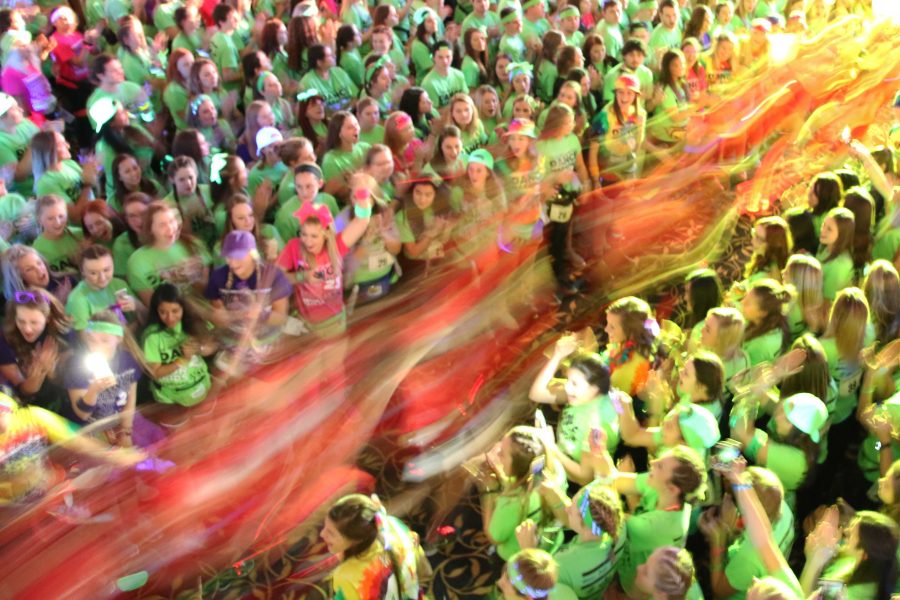By Sarah Stortz
After months of preparation and hard work, Dance Marathon 23 concluded this past weekend, raising a grand total of $2,572,130.23.
Once the money is gathered, the donations will be used to benefit children undergoing treatment at the University of Iowa Stead Family Children’s Hospital. This can range from helping pay for medical bills to meals, gift cards, and events geared toward patients. There’s also a new floor in the hospital called the Dance Marathon Pediatric Cancer Center that the money will fund.
Dance Marathon Financial Director Lindsey Lovik, who was behind the fundraising, ensured that sponsors and partners worked as best as they could.
“All of our money goes back to our families, and that’s something we have a lot of pride in,” Lovik said. “Aside from the financial support, it’s also about the emotional support. A lot of our families are so involved in Dance Marathon because of the role models that we see throughout the dance.”
UI sophomore Aly Noble, who worked as a morale captain, a person who recruits dancers and gets others to come to the event, also provided resources for the dancers throughout the year.
“I really look forward to being on leadership again and applying for different positions,” Noble said. “I’m excited to see what we can do for the kids next year.”
Aside from helping the hospital, the funds received in Dance Marathon can also go to other organizations.
Two times a year, the Dance Marathon Allocations Committee looks through applications from people who want proceeds to help fund their projects.
UI senior Mason Edwards, the Dance Marathon events director this year and part of the committee, said Dance Marathon receives requests from a vast number of organizations. The committee’s ultimate deciding factor depends on how the money benefits kids with pediatric cancer.
“We need to see if it fulfills our mission statement,” he said. “It can go from research grants to different funds that make hospital stays easier, to wigs for kids who lose their hair. There’s also our own personal things that we pay for the families.”
As the events director, Edwards’ main priority was to organize the entertainment throughout the IMU. Now that he has completed his last year, he said his experience with Dance Marathon was extremely positive.
“After the long hours that we put in throughout the year, it was basically the best 24 hours of my entire life,” he said. “Everybody keeps coming back because we’re able to see the impact firsthand on how the money is benefiting families. It’s kind of addictive, and it kind of makes you want to come back and keep doing more.”
Dance Marathon fell short of its goal this year by not reaching the $2.7 million mark, though Noble said the fallback should not bring everyone down.
“It’s not about how much money we raised but what the money does,” she said. “The kids and the families appreciate that so much, and I don’t think we could’ve done anything better.”



